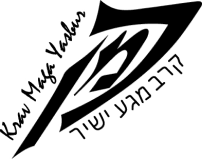The New Year always brings an “interesting” group of students to the school. There are those that have no previous martial arts experience, and then those who believe they have something to show and demonstrate to the people they train with. I continue to train in the martial arts, and my attitude has (and always will be), one where I just want to genuinely learn – I recognize that different systems take a different approach to self-defense and fighting, and that this approach can be valid even if it differs from my own. I have trained with enough organizations/associations in Israel to understand that there is more than one way to skin a cat etc. Different units, have different goals/objectives and train differently to achieve different aims; what makes “Krav Maga”, Krav Maga is that the concepts and principles that the approaches share are common and consistent. The other thing, which is a defining feature in Israel (and in modern military training), is that everyone trains to succeed. It is easy to cause a training partner to fail i.e. you know what they are about to do, and so can easily thwart and prevent them from achieving their objective. Unfortunately, this doesn’t give anyone a lesson in reality, just a lesson in how to deal with a person who knows what you are about to do. If violence/fighting was so predictable nobody would ever overcome anybody.
Whenever I witness people who don’t get it, deliberately obstructing another person’s training opportunity I am always glad that I have had a traditional martial arts upbringing. Judo, relies on a person being taken out of balance – if this doesn’t happen, Judo doesn’t work; it is as simple as that. When you practice Judo, you allow your partner to take you off balance; it isn’t a competition, you recognize that you have to aid/assist your partner in order for them to practice their technique - and succeed. When you spar, you resist and prevent them but in training you give them the “assistance”, that would be naturally provided in a dynamic setting. There is a time to test the effectiveness of what you have learnt, and a time to practice and master that which you are learning.
It is very easy to detect the individuals who only have a “head” knowledge of violence because they don’t understand the dynamism of movement that is prevalent and a defining feature of real life violence. When they practice they deny it, and refuse to acquiesce to it, and will not allow their training partner to experience it. All fights involve movement, and when movement is added, certain things are possible, and certain things aren't e.g. if I am throwing you, you are not in a position to hit me, as you are out of balance etc. There is a reason that humility is a foundation stone of the martial arts – it exists to allow an open and realistic training experience, between practitioners who have to admit that training is not a complete reflection of real-life, and that real-life can never be truly replicated in training.
When/as you train with someone, whether new or experienced, understand that part of your job is to play a “role”. If you are training a throw or takedown, you will have to act and behave in the way that someone attacking another, where such a technique/defense would be appropriate, would behave, by committing their weight and momentum to the attack etc. It is easy, but unrealistic, to throw punches where the body’s weight doesn’t move forward, just as it is easy to stiffen the arm of a hand holding a gun or a knife – all unrealistic responses, but ones that any person can make if they want to prevent somebody from enjoying a training experience.
We can’t prevent people behaving as idiots,even if in their world they believe they are adding to everybody's actual expereience (anyone who steps on to the mats, should be open to learning), however well “supposedly” trained they are in other systems. However we can make sure that we don’t emulate them in our own training. All Krav Maga systems talk about “Open” and “Closed” drills and we should make sure that our behaviors, actions and responses in training are appropriate to each. In a Closed drill there is a defined outcome and both partners should work to achive that, in an open drill there is no defined outcome and so there is much more of an anything goes approach to this style of training. There are times to let your partner achieve and times times to make them work to get a result – make sure you have the maturity and the training to recognize and understand both.
Share:

Gershon Ben Keren
2.8K FollowersGershon Ben Keren, is a criminologist, security consultant and Krav Maga Instructor (5th Degree Black Belt) who completed his instructor training in Israel. He has written three books on Krav Maga and was a 2010 inductee into the Museum of Israeli Martial Arts.
Click here to learn more.
